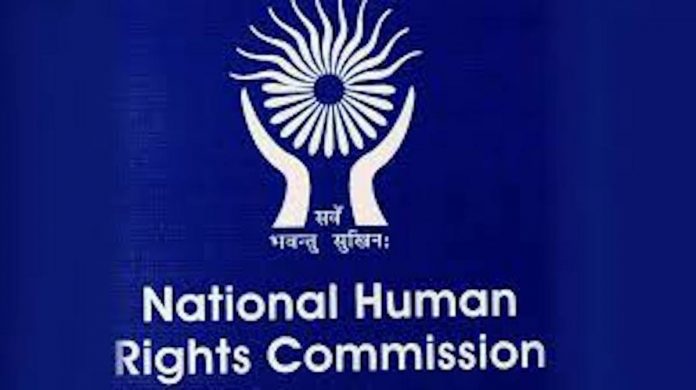A report by the National Human Rights Commission (NHRC) has revealed that no fewer than 18 persons have so far been killed by security operatives in attempts to enforce the directive on restriction on movement as part of measures to curtail the spread of the deadly COVID-19 in Nigeria.
The killings, according to the report, is an indication of both the level of unprofessionalism of security operatives in dealing with civil population as well as their reckless disregard for human lives.
Executive Secretary of the NHRC, Mr. Tony Ojukwu, who signed the report, however, disclosed that an App has been developed to effectively monitor, document and report incidences of human rights violations by law enforcement agencies during the period of the lockdown.
“The report shows that complaints of human rights violations were received and documented in the following thematic areas: extra-judicial killings, violation of right to freedom of movement, unlawful arrest, and detention, seizure/confiscation of properties, sexual and gender-based violence (SGBV), discrimination, torture, inhumane and degrading treatment, and extortion.
“There were eight documented incidents of extra-judicial killing leading to 18 deaths. Out of this number, 12 deaths were recorded in Kaduna State. Abia State also recorded two deaths arising from two incidents; while Delta, Niger, Ebonyi and Katsina States recorded one death each.
“Whereas COVID-19 has led to the death of about 11 patients to date (Tuesday), law enforcement agents have extrajudicially executed 18 persons to enforce the regulations. This speaks volumes of the protocols and rules of engagement for our law enforcement as well the efficiency level and capacity of law enforcement agents to deal with the civil population. It’s a sheer display of impunity and reckless disregard for human life in law enforcement by security personnel,” he said.
According to the report, the Nigeria Correctional Service was responsible for eight out of the 18 deaths while the Nigeria Police Force was responsible for seven deaths. The Nigeria Army, on the other hand, was responsible for two deaths while the Ebonyi State Task Force on COVID-19, Afikpo South LGA was responsible for one death.
The report also noted that other types of violations recorded within the period include 33 incidents of torture, inhumane and degrading treatment, 27 incidents of violation of the right to freedom of movement, unlawful arrest, and detention, 19 incidents of seizure/confiscation of properties, 13 incidents of extortion, four incidents of SGBV, and one incident of discrimination in the distribution of food items.
“The report finds that the Nigeria Police Force accounted for about 90 per cent of the total cases of violations followed by the Nigeria Army and Nigeria Correctional Service and other non-state actors. The report also finds that 31 incidents of violations representing about 29 per cent of the complaints have been resolved by different security agencies.
“The report further finds that the various human rights violations recorded during the period arose as a result of excessive or disproportionate use of force, abuse of power, corruption and none adherence to international and national human rights laws and best practices by law enforcement agents.
Ojukwu however said that with the development of the App, the commission will be updating Nigerians with the state of human rights violations and SGBV during COVID-19 pandemic on a weekly basis throughout the period of the lockdown.
The report span across the initial lockdown period commencing from March 30, 2020 to April 13, 2020, and looked into a total of 105 complaints from twenty-four states (24) out of the 36 states of the federation including the FCT, namely.
Out of 105 complaints/incidents of human rights violation received and documented within the initial lockdown period, Lagos State was said to have the highest recorded cases with 28 incidents, followed by the FCT, Abuja which had 10 recorded cases.
Enugu State recorded nine incidents, Abia, Delta and Nasarawa States seven, six and five incidents respectively. Rivers State also recorded five incidents of human rights violations while Imo recorded four incidents.
Ekiti, Akwa Ibom, Gombe, Kaduna and Ebonyi states recorded three incidents each; while Kwara, Osun, Benue and Niger States recorded three incidents each. Edo, Adamawa, Ogun, Cross River, Kogi, Bayelsa, Katsina and Plateau States recorded one incident each.


